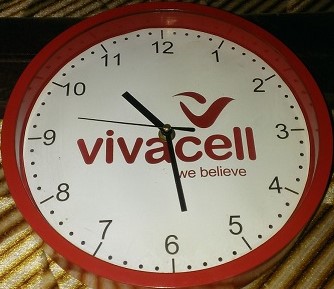 Managing time is very important, but it is challenging. It is a skill that reminds us that to achieve any desired goal, one must carefully spend time and effort on doing the activity. It doesn’t matter whether you are from South Sudan or not.
Managing time is very important, but it is challenging. It is a skill that reminds us that to achieve any desired goal, one must carefully spend time and effort on doing the activity. It doesn’t matter whether you are from South Sudan or not.
At this point in the history of the country, time is invaluable, and if it is not utilized 100% for achieving peace and development, one can only expect a negative outcome.
Many have heard the four words ‘It is African time’ continually repeated at public rallies. This is because many say that African time is usually a delayed time – meaning that for an event organized to start at 03:00pm, it will delay for 30mins or an hour before it starts.
To illustrate this, let’s say an announcement says an event is being organized and it is scheduled to start at 10:00am in the morning. The occasion, expected to include speeches and short interludes, will only last for two hours, including lunch.
In the beginning, the turnout is amazing and the event appears like it will start as scheduled. Unfortunately, this fails because the guest of honor arrives at 11:00am and the occasion is delayed.
When it starts, it delays further as many guests speak past their allocated time. One speaker, who has been given a few minutes, may say ‘I don’t have much to say’. But by the time he takes his seat again, he has taken more than double his allocated-time.
And the trend continues; the event that was to take two hours has now taken more than six hours, concluding at 05:00pm in the evening.
Because of these delays, the occasion might have forced an ordinary farmer to abandon a whole day of work in the fields just to hear the repeated and drawn-0ut messages from the speakers. NGOs and government institution representatives also fail to perform their official duties on that day.
The question now becomes, are citizens being deprived of receiving services from government officials? Have many important services necessary for the prosperity and development of the country been delayed because of poor time management?
Obviously, the answer is YES, their work has been hindered. Why? All because of poor time management.
'Accumulation of undone activities and diminishing time'
Coupled with the above scenario, there is another chronic condition called ‘accumulation of undone activities and diminishing time’. The activities for one day are added to those for the next day and the pattern keeps on. At the end of the year, little is done because of wasted time. The example given above is just a small portion of what has been hindering the country’s development efforts.
Therefore, when one wastes time on an activity without a proper timetable, we can only expect a lot more pending activities, slow progress, and little achievement.
Time management is not only something for a few people to take care of. Whether one is rich or poor, a civilian or a politician, a civil servant or a manual worker, it is something EVERYONE must take seriously in order to make activities run smoothly.
Scheduling your activities is at least the first step towards commitment to those activities, but implementing those activities is a whole different task. One may have a well-organized timetable for his daily tasks, but without the will to make it fit that said timetable, the timetable might as well be just another empty piece of paper.
So the question is: how can one manage their time in order to implement daily scheduled activities?
To answer that question, consider the task of a speaker given just five minutes for their speech. In order to give a good speech without taking too much time, they should commit themselves to prepare for the talk. It would be necessary to have time to write down key points to deliver: starting with the most important points, and then filling in the rest. Then they would rehearse it and edit out useless details. They would have to give themselves a portion of time every day, fitting it around their regular schedule, until they have properly prepared for the speech.
The point is not allowing them to avoid attending to important day-to-day activities but guiding them in a way to help balance out their duties so they can manage to do both.
If they are always too relaxed about how much time an event or project takes, the fruits harvested from these events will be poor quality, and at the end of the day they will have grown older and have accomplished much less than they set out to do.




